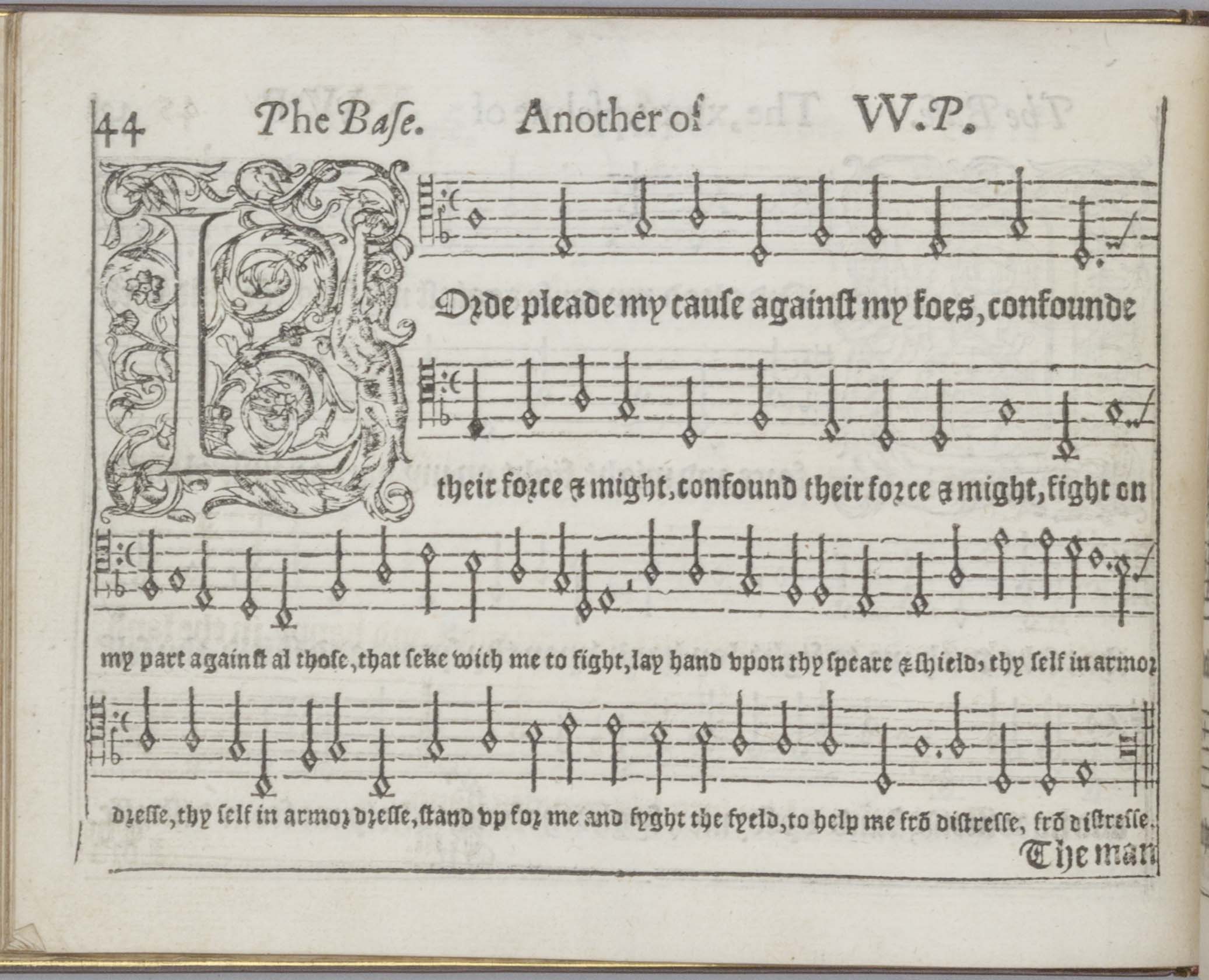
London: J. Day, 1563
[Littleton] 8 SR
The Book of Psalms, in Latin, chanted by a priest, formed the basis of the mediaeval church liturgy. Thomas Sternhold (d. 1549) and John Hopkins (d. 1570) brought them in paraphrased English to the multitudes: for the first time, psalms were sung by everybody on a weekly basis, thereby, like the Book of Common Prayer, helping to unify the nation. They were England’s best-known verses from 1562, when John Day, working over Aldersgate, published the first version to contain all 150 of the psalms, until the 1690s, being printed at the back of every edition of the Geneva Bible after 1560 and most editions of the Book of Common Prayer. Whereas melodic plainsong had uneven lines, Sternhold and Hopkins’s short metrical stanzas to simple and regular tunes facilitated communal singing. They transformed liturgical singing and influenced a wider range of English hymns. In America and Scotland they were sung until the mid-seventeenth century. In England they declined from the end of the seventeenth century, supplanted by those of Nahum Tate and Nicholas Brady (1696), and were condemned for literary demerit in the eighteenth century. Yet by 1852 they had appeared in over one thousand separate editions.